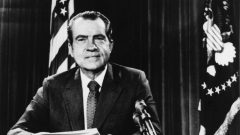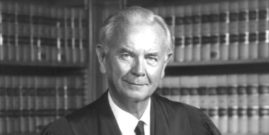The prospects for a repeat of the post-World War II experience of falling debt/GDP ratios are poor.
The Resilience of Property Rights
In 2016, the goofballs at the World Economic Forum (WEF) published an article of fantastical utopianism. Ida Auken, a socialist member of the Danish parliament, wrote that in the year 2030, she lived in a city where nobody owned anything and everybody was happy. Private ownership has been abolished, everything we used to pay for is now free, green energy powers everything—it’s exactly the kind of nonsense you’d expect from a Danish socialist.
In 2018, the WEF tweeted a video of predictions for 2030 that included, “You’ll own nothing. And you’ll be happy.” Five years on, we can see that there’s still a long way to go for that prediction to come true.
In 2023, Carol Roth wrote a book called You Will Own Nothing, in which she takes the WEF a little too seriously and pulls together stray facts from around the global economy to allege that “World War F” is on the horizon, “a financial world war where you are ‘F’d.’”
Roth is a hyperactive Twitter user, and her book reads like an amalgamation of Twitter threads, so it can sometimes be difficult to keep the argument straight. Right off the bat, for example, the reader is told that there are three aggressors in World War F: “government and government-related forces (think Congress and the Federal Reserve),” “bad actors and elite power-grabbers (think the World Economic Forum and big business),” and “Big Tech.” These aren’t really distinct categories, as government contains bad actors and power-grabbers, and Big Tech is part of big business.
Regardless, there’s a group of elites out there who want to prevent you from owning stuff, according to Roth. As evidence, she points to government overreach during the Covid pandemic, high levels of government and individual debt, poor monetary policy by the Federal Reserve, the potential adoption of central-bank digital currencies, and the proliferation of ESG investing, among other economic problems.
The resilience of property rights is perhaps best demonstrated by the lengths that totalitarian regimes have to go to undo them.
Most of the problems she cites are real and concerning. The federal government’s attempts to mandate Covid vaccinations as a condition of employment through OSHA were wrong. The Fed has deserved criticism since at least the Great Depression, as Milton Friedman and Anna Schwartz have demonstrated. ESG investing and its close relative, stakeholder capitalism, are infringements on the property rights of investors and shareholders when they are pursued without their consent. A central-bank digital currency is a solution in search of a problem. And the high levels of debt in American society, both in the federal budget and in many private budgets, demonstrates a troubling lack of concern for financial common sense that will come back to bite us again, as it has in the past.
The strange part of the book is the insistence that all of these trends are part of a plot by elites to ensure that you, the reader, will own nothing. Let’s look at some of the evidence.
Roth points to the trend of private equity firms buying single-family homes and leasing them as evidence of the efforts by elites to prevent individual ownership. It is true that private equity firms have been purchasing homes recently. But as the Wall Street Journal has recently reported, that trend has mostly stopped. And the highest proportion of single-family homes in the US that were purchased by large landlords was 2.4 percent in 2021.
Part of the reason for private equity firms getting into single-family homes was the Federal Reserve’s monetary policy that held interest rates near zero for a very long time. The thought process for many of these firms seems to have been, if we can’t make money by lending money, maybe we can make money in real estate. Now that interest rates are returning to more historically normal levels, they can again make money by lending money.
There are few things the federal government incentivizes more than homeownership. “The United States is the only major country in the world with a federal government mortgage insurer, government guarantees of mortgage securities, and government‐sponsored enterprises (GSEs) in housing finance,” writes Norbert Michel of the Cato Institute. The 30-year fixed-rate mortgage is essentially a creation of the federal government, with low, stable, monthly payments for borrowers on loans backed by Fannie Mae and Freddie Mac.
Since 1965, the homeownership rate in the United States has stayed between 63 percent and 69 percent. So no matter what happens in the economy overall, about two-thirds of US households are owner-occupied. We’re near the midpoint of that range right now, at 65.9 percent, and that’s slightly higher than it was before the Covid pandemic.
The example of homeownership illustrates how Roth’s theory about the elites doesn’t hold up. The private-equity elites are responding to the incentives created by the Federal Reserve elites, which used to encourage buying single-family homes but don’t anymore. The federal-government elites do just about everything they can to encourage homeownership, but the historical record from the past 60 years shows that whatever combination of subsidies and guarantees they come up with, the homeownership rate will be about two-thirds. The Covid pandemic saw a large increase in home prices—good news for homeowners, but bad news for homebuyers—which netted out to a slight increase in the homeownership rate. So where’s the unified plan to make sure you don’t own a home? It’s pretty hard to discern one.
Such unified plans are virtually impossible to carry out in a global market economy. The technocrats who gather in Davos every year are under the self-delusion that they are changing the world one DEI-approved speaking panel at a time. A takeaway from Hayek’s work on spontaneous order is that the world economy doesn’t need a forum to run it. Plenty of the ideas coming out of the WEF are odious and deserve the scorn they receive, including the idea that an overall decline in private ownership would be a good thing. But the global market economy is a whole lot stronger than some pronouncements from the Alps.
Property rights are particularly resilient. As the economist Harold Demsetz argued in his 1967 paper “Towards a Theory of Property Rights,” property rights are an emergent phenomenon like markets, and they arise naturally. “Property rights are an instrument of society and derive their significance from the fact that they help a man form those expectations which he can reasonably hold in his dealings with others,” Demsetz wrote. “These expectations find expression in the laws, customs, and mores of a society.”
Significantly altering the property rights in a society would also require significantly altering those laws, customs, and mores. The resilience of property rights is perhaps best demonstrated by the lengths that totalitarian regimes have to go to undo them. Regimes that seek to restrict private property rights, such as communist China, or eliminate them entirely, such as the Khmer Rouge in Cambodia, have had to use brutal means to do so. The regimes are often aptly described as “dehumanizing.” One aspect of that dehumanization is the denial of the property rights that naturally emerge in human societies.
If the war to end private ownership can be won by buying stuff and being smart with your money, it doesn’t seem like much of a war.
The laws, customs, and mores of the United States are very strongly in favor of private property. That doesn’t mean Americans should be complacent. Defending property rights against abuses is vital. Roth is right to value property rights highly and be concerned about their erosion. The US has areas where property rights are not respected adequately, such as when law enforcement seizes the assets of people accused of crimes, often in ways that have little to do with the crime. And Roth is right to raise the alarm about inheritance taxes and right to note that they might become more politically popular as wealthier generations die. The event of your death should not give the government power to take a chunk of your money and prevent it from going to your family. Nevertheless, she overstates how near the US is to a future where “you will own nothing.”
She implicitly understands this with the conclusion of her book, on how to win World War F. It’s largely common-sense financial advice (diversify your investment portfolio, pay down your debts, contribute to your 401(k), plan what happens with your inheritance) combined with ordinary political activism (write your representatives to oppose ESG, be active in school issues, run for office, support zoning reform to make housing more affordable). She also encourages readers to buy physical media instead of being dependent on streaming services, and to invest in tangible assets such as land and precious metals.
If the war to end private ownership can be won by buying stuff and being smart with your money, it doesn’t seem like much of a war. Roth is correct that the dystopia she envisions is avoidable if Americans are smart about their pocketbooks and hold their government accountable. We have already seen effective pushback on issues such as ESG, especially at the state level, where numerous states have reiterated that their pension funds will prioritize high returns, not social-justice measures.
A deeper understanding of economics and of politics is a good antidote to alarmism such as Roth’s. Even if all the elites were on the same page, enacting a covert plan to deprive Americans of ownership, it would be nearly impossible to accomplish. And such overreaches are likely to generate resistance from the public, who get to vote for different leaders and influence policy in other ways between elections as well. The way to avoid a future where you own nothing is to stand up for American institutions of free markets and limited government, the solution that Roth essentially ends up endorsing after 200+ pages of blustering about global war. And you were supposed to be doing that anyway.



